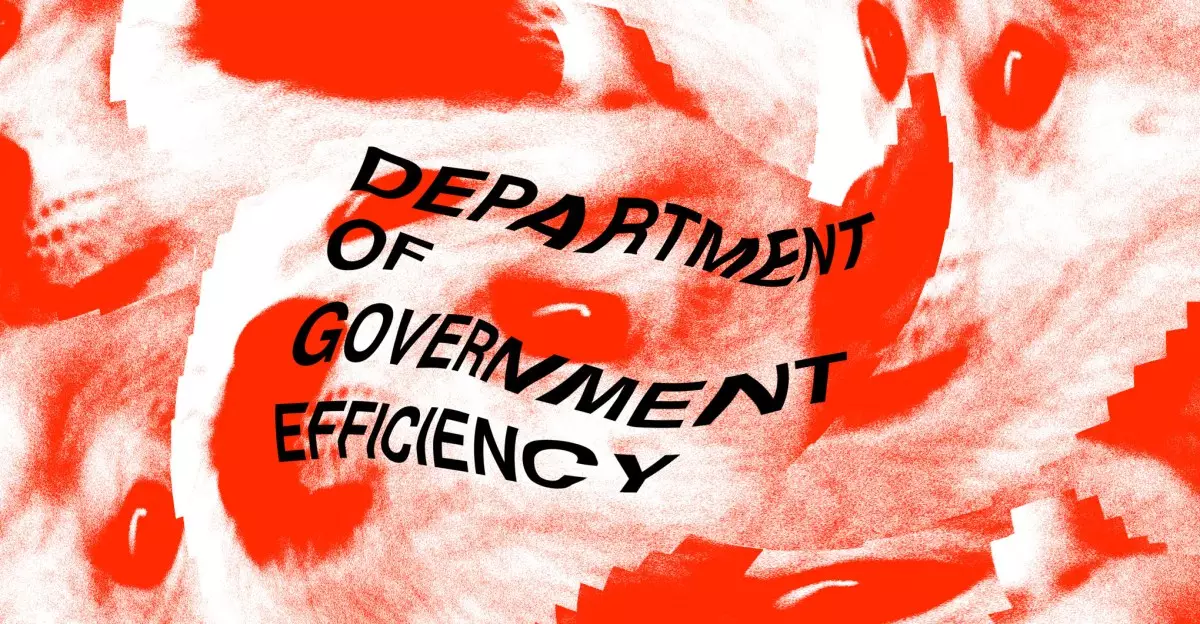The Department of Government Efficiency (DOGE), helmed by the enigmatic Elon Musk, is aiming for the stars with its ambitious plan to create a “mega API” for accessing Internal Revenue Service (IRS) data. This initiative, painted as a means to streamline governmental processes, raises eyebrows not only for its technological aspirations but also for the daunting timeline and implications it carries. Reports suggest that the project intends to involve the integration of IRS data into a cloud platform, potentially requiring third-party databases, raising important questions about data security, privacy, and the depth of bureaucratic understanding.
The ambition is admirable, yet the execution is fraught with challenges. The time frame set for completing such a complex API—30 days—is not only overly ambitious, but some insiders have indicated that it could be detrimental to the IRS’s ability to function effectively. The implications of rushing such a project without sufficient groundwork could lead to disastrous consequences, including crippling the very systems designed to facilitate tax collection and compliance.
Collaboration and Controversy
One of the most intriguing aspects of this initiative is the potential collaboration with companies like Palantir, notorious for its extensive data collection and analytical capabilities in government surveillance. This partnership exemplifies the intersection of technology and governance, but it also raises ethical questions. Can we trust a private entity with sensitive taxpayer information? The mere idea of outsourcing important IRS operations to third-party providers shines a glaring light on the delicate balance between efficiency and privacy.
Moreover, concerns about the credentials of the personnel behind this initiative linger. The fact that key figures like Gavin Kliger and health-tech CEO Sam Corcos, relatively inexperienced in government and tax affairs, are driving this endeavor suggests a disconnect from the systemic intricacies that underpin IRS operations. An unnamed source pointed out that understanding and organizing IRS data could take years—highlighting a concerning gap in comprehension when it comes to the sensitive nature of tax data.
The Legislative Pushback
Legislative bodies are taking notice of DOGE’s aggressive proposals. A recent letter from Senator Ron Wyden and other lawmakers has praised the IRS for resisting DOGE’s requests to loosen data access restrictions. This highlights a critical dynamic within governance, where the need for innovation often collides with the necessity of safeguarding the public’s most sensitive information. The actions taken by the IRS to maintain tight reins on data access reflect a broader commitment to transparency and accountability, echoing a demand that does not stem solely from bureaucratic caution but from a public deeply concerned about how their information is handled.
The scrutiny of DOGE’s approach sheds light on the importance of establishing thorough frameworks for any future technological adaptations in government systems. While the promise of innovative solutions might be enticing, they should not come at the cost of compromising the core values of privacy and security.
The Road Ahead: A Question of Feasibility
As DOGE forges ahead with its blueprint to revolutionize IRS data access, the road ahead remains uncertain. The enthusiasm surrounding the mega API must be tempered by a sober analysis of its feasibility and the potential ramifications on existing infrastructures. It is essential to ask tough questions about the balance of efficiency, innovation, and ethical governance. The future of governmental data access is undoubtedly a tempting frontier, but it is crucial to proceed with caution and a well-informed strategy rather than embarking on an impractical race against the clock.

